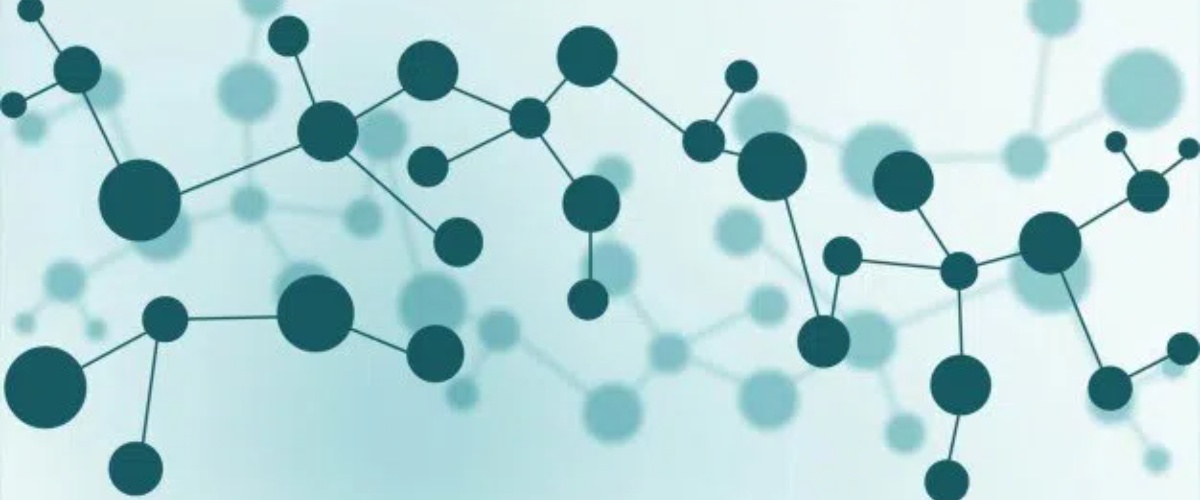NAD+ is also called coenzyme, and its full name is nicotinamide adenine dinucleotide. It is an important coenzyme in the tricarboxylic acid cycle. It promotes the metabolism of sugar, fat, and amino acids, participates in the synthesis of energy, and participates in thousands of reactions in every cell. A large amount of experimental data shows that NAD+ is widely involved in a variety of basic physiological activities in the organism, thereby intervening in key cellular functions such as energy metabolism, DNA repair, genetic modification, inflammation, biological rhythms, and stress resistance.
According to relevant research, the NAD+ level in the human body will decrease with age. Decreased NAD+ levels may lead to neurological decline, vision loss, obesity, heart function decline and other functional declines. Therefore, how to increase the NAD+ level in the human body has always been a question. A hot research topic in the biomedical community.
Because, as we age, DNA damage increases. During the DNA repair process, the demand for PARP1 increases, the activity of SIRT is limited, NAD+ consumption increases, and the amount of NAD+ naturally decreases.
Our body is made up of approximately 37 trillion cells. Cells must complete a lot of "work" or cellular reactions - in order to maintain themselves. Each of your 37 trillion cells relies on NAD+ to do its ongoing job.
As the world's population ages, aging-related diseases such as Alzheimer's disease, heart disease, joint problems, sleep, and cardiovascular problems have become important diseases that threaten human health.
NAD+ levels decrease with age, based on measurements from human skin samples:
Measurement results show that as age increases, the NAD+ in the human body will gradually decrease. So what causes the decrease in NAD+?
The main causes of NAD+ decrease are: aging and increased demand for NAD+, which results in decreased NAD+ levels in many tissues, including liver, skeletal muscle, and brain. As a result of the reduction, mitochondrial dysfunction, oxidative stress and inflammation are thought to contribute to age-related health problems, creating a vicious cycle.
1. NAD+ acts as a coenzyme in mitochondria to promote metabolic balance, NAD+ plays a particularly active role in metabolic processes such as glycolysis, TCA cycle (aka Krebs cycle or citric acid cycle) and the electron transport chain , is how cells obtain energy. Aging and a high-calorie diet reduce NAD+ levels in the body.
Studies have shown that in older mice, taking NAD+ supplements reduced diet- or age-related weight gain and improved exercise capacity. Additionally, studies have even reversed the effects of diabetes in female mice, showing new strategies to combat metabolic diseases such as obesity.
NAD+ binds to enzymes and transfers electrons between molecules. Electrons are the basis of cellular energy. NAD+ acts on cells like recharging a battery. When the electrons are used up, the battery dies. In cells, NAD+ can promote electron transfer and provide energy to cells. In this way, NAD+ can reduce or increase enzyme activity, promoting gene expression and cell signaling.
NAD+ helps control DNA damage
As organisms age, adverse environmental factors such as radiation, pollution, and imprecise DNA replication can damage DNA. This is one of the theories of aging. Almost all cells contain the "molecular machinery" to repair this damage.
This repair requires NAD+ and energy, so excessive DNA damage consumes valuable cellular resources. The function of PARP, an important DNA repair protein, also depends on NAD+. Normal aging causes DNA damage to accumulate in the body, RARP increases, and therefore NAD+ concentrations decrease. Mitochondrial DNA damage at any step will exacerbate this depletion.
2. NAD+ affects the activity of longevity genes Sirtuins and inhibits aging.
The newly discovered longevity genes sirtuins, also known as the "guardians of genes," play a vital role in maintaining cell health. Sirtuins are a family of enzymes involved in cellular stress response and damage repair. They are also involved in insulin secretion, the aging process, and aging-related health conditions such as neurodegenerative diseases and diabetes.
NAD+ is the fuel that helps sirtuins maintain genome integrity and promote DNA repair. Just like a car cannot live without fuel, Sirtuins require NAD+ for activation. Results from animal studies show that increasing NAD+ levels in the body activates sirtuin proteins and extends lifespan in yeast and mice.
3.Heart function
Raising NAD+ levels protects the heart and improves heart function. High blood pressure can cause an enlarged heart and clogged arteries, which can lead to stroke. After replenishing the NAD+ level in the heart through NAD+ supplements, the damage to the heart caused by reperfusion is inhibited. Other studies have shown that NAD+ supplements also protect mice from abnormal heart enlargement.
4. Neurodegeneration
In mice with Alzheimer's disease, increasing NAD+ levels enhanced cognitive function by reducing the buildup of proteins that disrupt brain communication. Raising NAD+ levels also protects brain cells from dying when there isn't enough blood flowing to the brain. NAD+ appears to have new promise in protecting against neurodegeneration and improving memory.
5. Immune system
As we age, our immune systems decline and we are more susceptible to illness. Recent research suggests that NAD+ levels play an important role in regulating immune responses and inflammation and cell survival during aging. The study highlights the therapeutic potential of NAD+ for immune dysfunction.
6. Regulate metabolism
Fight oxidative damage
NAD+ can help delay aging by inhibiting inflammatory reactions, regulating the body's redox homeostasis, protecting cells from damage, maintaining normal metabolic activities
7. Assist in suppressing tumors
NAD+ can also prevent and treat leukopenia caused by radiotherapy and chemotherapy, improve drug resistance caused by long-term use of PD-1/PD-L1 antibodies, and improve T cell activation and tumor killing capabilities.
8. Improve ovarian function
The NAD+ level in female ovaries decreases in an age-dependent manner. Increasing NAD+ content can improve ovarian mitochondrial function, reduce reactive oxygen species levels in aging oocytes, and delay ovarian aging.
9. Improve sleep quality
NAD+ can improve circadian rhythm imbalance, improve sleep quality, and promote sleep by regulating the biological clock.
The various organs of the body do not exist independently. The connections and interactions between them are much closer than we imagine. Substances secreted by a cell can be transported to any location in the body in an instant; neurotransmitter information is transmitted as fast as lightning. Our skin, as the barrier of the entire body, is the front line of the battlefield and is more susceptible to various injuries. When these injuries cannot be repaired, various problems such as aging will follow.
First, the aging process of skin is accompanied by a series of changes at the cellular and molecular levels, which can be transmitted to other tissues or organs through various pathways.
For example, the frequency of p16-positive cells (a marker of aging) in the skin is positively correlated with aging markers of immune cells, which means that the biological age of the skin can predict the aging of the body to a certain extent. In addition, the study found that skin microbiota can accurately predict chronological age, further confirming the close connection between skin and systemic aging.
Previous literature has reported that the aging process among various organs in the body is asynchronous, and the skin may be the first organ to show signs of aging. Based on the close connection between the aging of the skin and other body organs, people have reason to boldly suspect that the aging of the skin may cause the aging of the whole body.
Skin aging can affect the brain through the endocrine system
Aging of the skin may affect the entire body through the hypothalamic-pituitary-adrenal (HPA) axis. The skin is not only a barrier, it also has neuroendocrine functions and can respond to environmental stimuli and secrete hormones, neuropeptides and other substances.
For example, ultraviolet irradiation can cause skin cells to release a variety of hormones and inflammatory mediators, such as cortisol and cytokines. These substances can activate the HPA system in the skin. The activation of the HPA axis causes the hypothalamus to release corticotropin-releasing hormone (CRH). This in turn stimulates the anterior pituitary gland to secrete adrenocorticotropic hormone (ACTH), which ultimately prompts the adrenal glands to secrete stress hormones such as cortisol. Cortisol can affect multiple areas of the brain, including the hippocampus. Chronic or excessive cortisol exposure may negatively impact neuronal function and plasticity in the hippocampus. This in turn affects the function of the hippocampus and the brain's stress response.
This skin-to-brain communication proves that the aging process may be caused by environmental factors, which first cause skin reactions and then affect the brain through the HPA axis, leading to systemic problems such as cognitive decline and increased risk of cardiovascular disease.
Skin senescent cells secrete SASP and induce inflammation to drive age-related aging and diseases
Skin aging may also affect the entire body by promoting inflammation and immunosenescence. Aging skin cells secrete a substance called the "senescence-associated secretory phenotype" (SASP), which includes a variety of cytokines and matrix metalloproteinases. SASP is physiologically versatile. It can resist harmful external environments in normal cells. However, as body functions decline, the massive secretion of SASP may induce inflammation in the body and induce dysfunction of neighboring cells, including immune cells and endothelial cells. This low-grade inflammatory state is thought to be an important driver of many age-related diseases.

Coenzymes participate in the metabolism of important substances such as sugar, fat, and protein in the human body, and play a key role in regulating the body's material and energy metabolism and maintaining normal physiological functions. NAD is the most important coenzyme in the human body, also called coenzyme I. It participates in thousands of redox enzymatic reactions in the human body. It is an indispensable substance for the metabolism of every cell. It has many functions, the main functions are:
1. Promote the production of bioenergy
NAD+ generates ATP through cellular respiration, directly supplementing cell energy and enhancing cell function;
2. Repair genes
NAD+ is the only substrate for the DNA repair enzyme PARP. This type of enzyme participates in DNA repair, helps repair damaged DNA and cells, reduces the chance of cell mutation, and prevents the occurrence of cancer;
3. Activate all longevity proteins
NAD+ can activate all 7 longevity proteins, so NAD+ has a more important impact on anti-aging and extending lifespan;
4. Strengthen the immune system
NAD+ strengthens the immune system and improves cellular immunity by selectively affecting the survival and function of regulatory T cells.
Notably, aging is accompanied by a progressive decline in tissue and cellular NAD+ levels in a variety of model organisms, including rodents and humans. Declining NAD+ levels are causally linked to many diseases associated with aging, including cognitive decline, cancer, metabolic disease, sarcopenia, and frailty.

There is no endless supply of NAD+ in our body. The content and activity of NAD+ in the human body will decrease with age, and it will decrease rapidly after the age of 30, resulting in cell aging, apoptosis and loss of regeneration ability. .
Moreover, the reduction of NAD+ will also cause a series of health problems, so if NAD+ cannot be replenished in time, the consequences can be imagined.
Supplement from food
Foods such as cabbage, broccoli, avocado, steak, mushrooms, and edamame contain NAD+ precursors, which can be converted into active NAD* in the body after absorption.
Restrict diet and calories
Moderate caloric restriction can activate energy-sensing pathways within cells and indirectly increase NAD* levels.But make sure you eat a balanced diet to meet your body’s nutritional needs
Keep moving and exercising
Moderate aerobic exercise such as running and swimming can increase intracellular NAD+ levels, help increase oxygen supply in the body and improve energy metabolism.
Follow healthy sleep habits
During sleep, the human body carries out many important metabolic and repair processes, including the synthesis of NAD*.Getting enough sleep helps maintain normal levels of NAD*
05Supplement NAD+ precursor substances
The following people cannot receive treatment
People with low kidney function, those undergoing dialysis, epilepsy patients, pregnant women, lactating women, children, those currently undergoing cancer treatment, those taking medication, and those with a history of allergies, please consult your attending physician.
Q:What are NAD+ supplements used for?
A:NAD+ supplement is a nutritional supplement that supplements coenzyme NAD+ (nicotinamide adenine dinucleotide). NAD+ plays an important role in energy metabolism and cell repair within cells.
Q: Do NAD+ supplements really work?
A: Some research suggests NAD+ supplements may help improve cellular energy metabolism and slow down the aging process.
Q:What are the dietary sources of NAD+?
A: Dietary sources of NAD+ include meat, fish, dairy products, beans, nuts and vegetables. These foods contain more niacinamide and niacin, which can be converted into NAD+ in the body.
Q: How do I choose a NAD+ supplement?
A: When choosing NAD+ supplements, it is recommended to first seek advice from a doctor or nutritionist to understand your nutritional needs and health status. In addition, choose a reputable brand, check the product ingredients and dosage, and follow the dosage guidance on the product insert.
Disclaimer: This article is for general information only and should not be construed as any medical advice. Some of the blog post information comes from the Internet and is not professional. This website is only responsible for sorting, formatting and editing articles. The purpose of conveying more information does not mean that you agree with its views or confirm the authenticity of its content. Always consult a health care professional before using any supplements or making changes to your health care regimen.
Post time: Aug-06-2024






